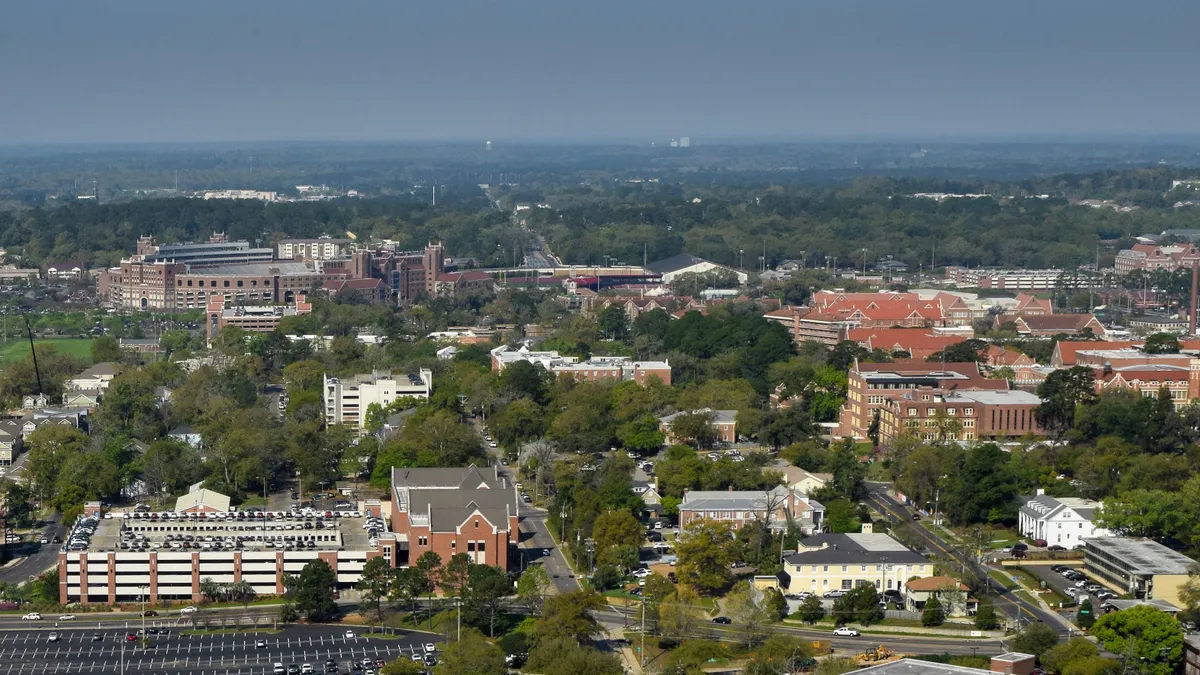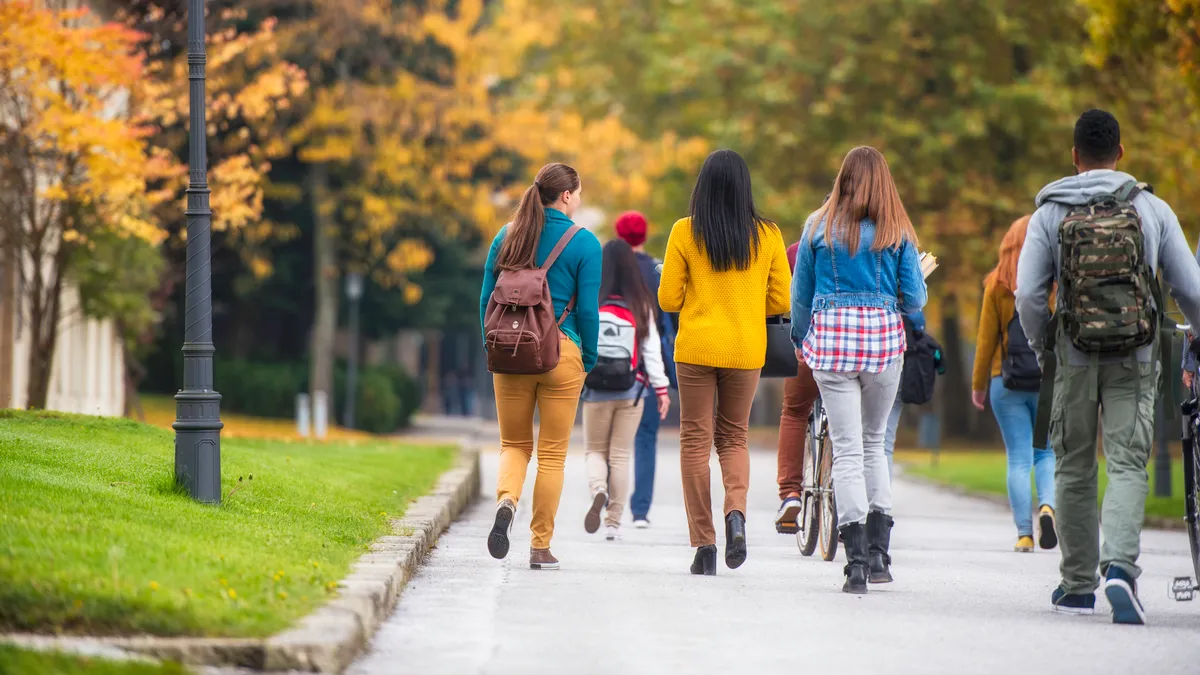Dive Brief:
- A core group of mentors at the University of California Santa Barbara has been developing strategies to support first-generation college students, who struggle with the transition to college life.
- The Bottom Line reports a Black Studies Ph.D. candidate and teaching assistant organized a series of workshops, helping other TAs understand the first-generation student experience and think about issues like food insecurity and mental health problems that come with the strain of being the first in the family to go to college.
- The mentorship approach focuses on accountability, time management and student well-being, with mentors committing to helping students academically and connecting them to resources on campus.
Dive Insight:
First-generation students are making up larger portions of student bodies on campuses across the country as more and more students consider college an option.
Many schools are recruiting first-generation students, specifically, to increase access to their institutions and diversify their classes. Once the students are on campus, however, many colleges lack infrastructure to help them succeed. As policymakers pay more attention to student outcomes, it will not be enough to tout access. Colleges will have to be in position to work with students to help ensure success as well.







